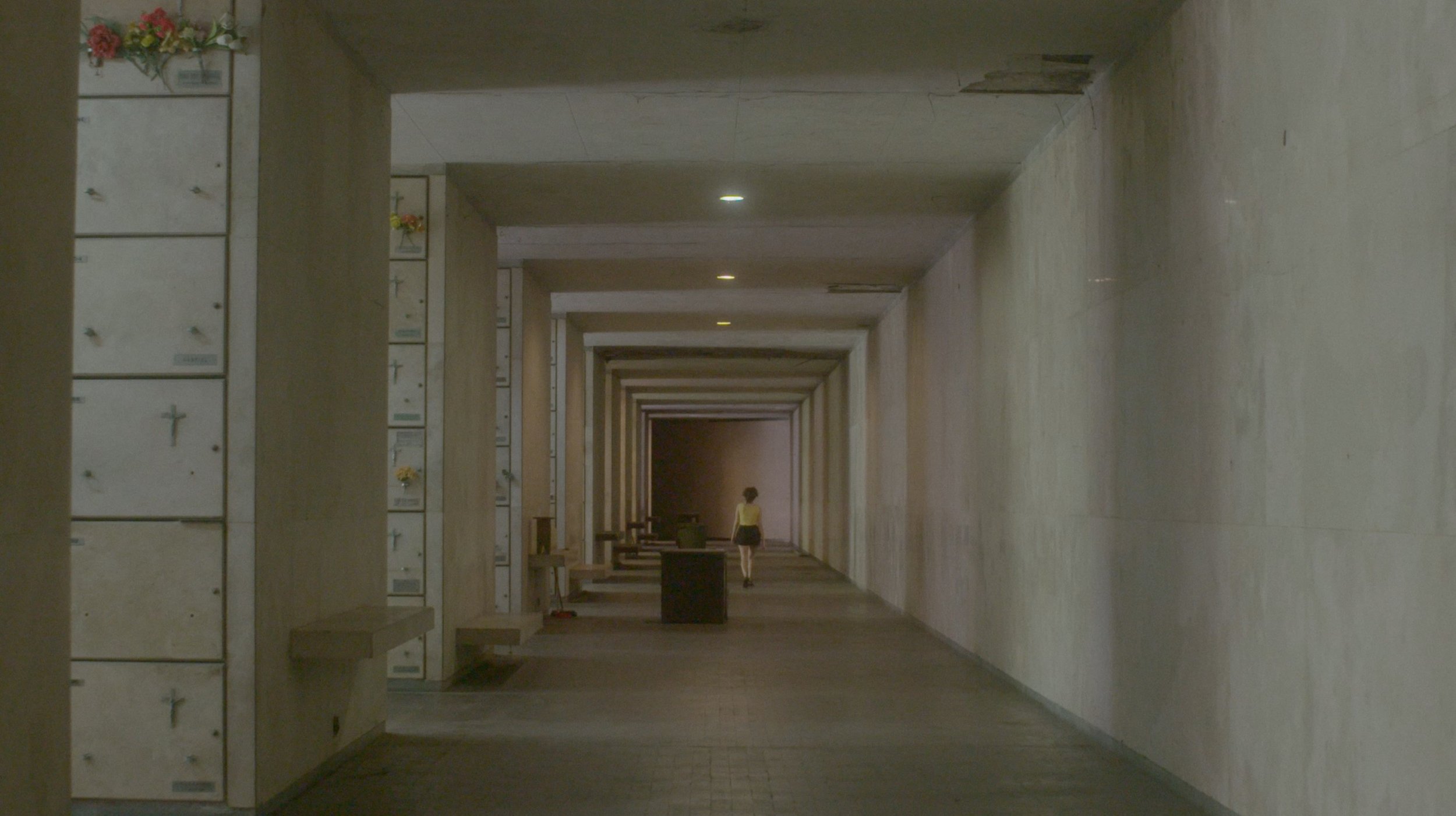
October Note: In full solidarity with the people of Palestine!
Filmmaker Sílvia das Fadas was in LA last October, 2022, to screen her film, Light, Blaze, Fulgor: Auguries for a Non-Hierarchical Framing and Flourishing in this screening series, Rotations, that I got up and running in late 2021. Her work is deceptively beautiful, a graze of daily activity in Alentejo, Portugal, shot among community on 16mm film and shot through with communitarian, beguine, unsettling politics. In an essay we published for the screening, she writes, “Against a firmament of dispossession of land, bodies and social bonds, we are getting ready.” Later, Sílvia sends me more writing, and what I think of as foundational politics—how one body encounters another, recognizes another—deepens. She writes, in this piece, about staying in my apartment during her time here. She’s writing to a friend. “This is not my room,” she writes. “It is the room of a leftist poet and it is filled with books by other women. A room of a poet who lives in Los Angeles without a car, as I used to live. A new friend. How many rotations are needed to make the wheel of hospitality turn? And that of reciprocity?”
Am I a leftist poet? I am leftist in the sense that my liberalism desires a reach far past polite enduring, as Roland Barthes writes about liberalism in “J’aime, je n’aime pas”: “A fly bothers me, I kill it: you kill what bothers you. If I had not killed the fly, it would have been out of pure liberalism: I am liberal in order not to be a killer.” Barthes Barthes: beware your liberalism, he seems to say, sloppy prophylactic for the lurking venom of identifying with our “tastes” while others have no chance.
Condemnation is impossible if we did not do anything on purpose, says an Israeli government spokeswoman who refused to condemn her military for its crimes, throwing condemnation under the bus of mediated “war,” throwing war under the bus of a media market that’s forgotten a world that could be anti-war. “We gave them that land … they could have made Dubai, instead they made Beirut,” she said.
I want to go back to Sílvia’s use of rotations. Is she mindfully using the word, recalling the quickly-named name of the series? Does it, regardless, explain as I never could what I meant to relay implicitly about how I wanted to curate? Who cares. It does do that—I learn in the wake of those who make things and want to talk about them … simple enough. Yet hospitality, bringing any filmmaker to us, here, which is also elsewhere and also is not, in their watchfulness (Steffani Jemison), persistence of vision (Stanya Kahn), atemporal seeking (Iva Radivojević), dérive (Miko Revereza and Carolina Fusilier), recuperation (Babette Mangolte), and excavation (Sierra Pettengill), for some e.g.s, guarantees reciprocity, the more we attend. June Jordan talks about this, specifically in A Place of Rage (1991), when she connects Palestinian liberation to civil rights struggles, to LGBTQIA fights for recognition—the clip has been going around. Reciprocity is a practice more 3D than relation, means Jordan, whose childhood friend was terrorized by cops, whose terrorization radicalized her. How many human rights organizations have been designated by Israel as terrorist organizations? Six. How many rotations are needed to make the wheel of reciprocity turn? Is your head spinning? We don’t have time for how many.
Rotations is a liberatory-minding, transnational feminist series meant to carve out a tiny bit of autonomous space for anyone who cares to place all of this film work on a continuum with reading, writing, viewing, curating, living in each other’s apartments without a car, making films, poems, studying. We would strike in full solidarity every day with the horrifying real of the Palestinian people near and far, we seek an olive-tree-lined history that never happened, we care about multi-directional memory, and we lead with love even as we fight, or reject, even if the fights are projections with the wrong objects, even as we discern our authorities. We are complicit. We wish we were a we, constantly. We leave the door open for collaboration and freedom of movement, not metaphorically. We know family members of friends of friends have been killed. We know solidarity is both complicated and very, very simple; and we write in fury that others don’t get it, that people believe some neutral Switzerland exists where art and politics or poetry and politics or night and politics or apples and politics, the Holocaust and decolonization, electoral politics and revolutionary violence, or *feminism* and Palestine are unrelated. Rotations is participating alongside thousands of artists around the world in the cultural boycott of Israel (PACBI). Resembling a kind of embodiment we’re starved for.
—Corina, Oct. 20, 2023; revised Oct. 31.
image: Aleph (2021), Iva Radivojević

